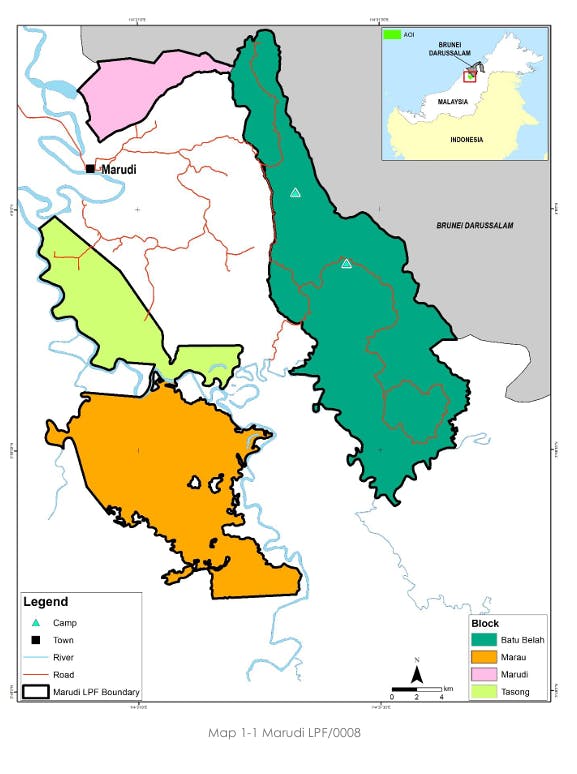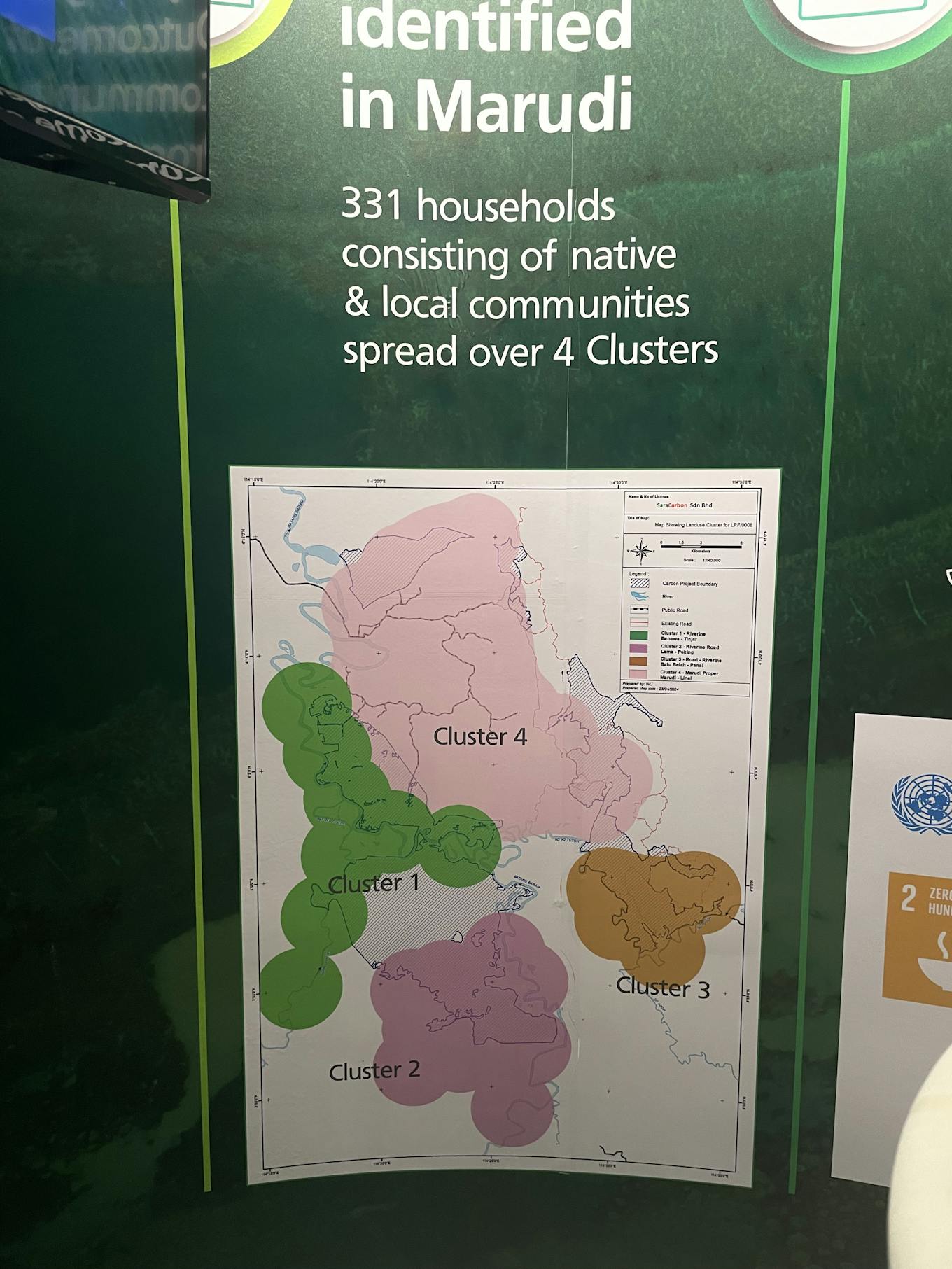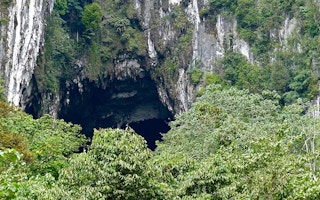Concern is growing among Indigenous communities in the Malaysian state of Sarawak that newly proposed nature-based carbon projects, backed by local timber giants, would result in unevenly distributed benefits and restrict their access to the forests they depend on.
To continue reading, subscribe to Eco‑Business.
There's something for everyone. We offer a range of subscription plans.
- Access our stories and receive our Insights Weekly newsletter with the free EB Member plan.
- Unlock unlimited access to our content and archive with EB Circle.
- Publish your content with EB Premium.
Non-governmental organisations (NGOs) Save Rivers, Keruan and the Borneo Project in a statement on 10 May voiced concern about a proposed carbon project by local timber giant Shin Yang in the north of the state, titled the Jalin Forest Carbon Management project. They lamented the “total absence of public information about Shin Yang’s carbon permit for this project, as well as several underlying issues regarding the carbon market in Sarawak.”
There are no public documents about the project on the company’s website, nor the web portal of the Forest Department of Sarawak. However, the forest department posted on social media in January that it had granted Shin Yang a two-year carbon study permit for the Jalin Forest Carbon Area in Ulu Baram, spanning 26,353 hectares. The results of the study are to inform Shin Yang’s carbon project design document, which it must submit to the state government as part of its application for a licence to develop the carbon project.
Local representative Violet Yong, in a speech to the Sarawak state assembly on 8 May, called out the lack of transparency surrounding the permit application. She asked that the state government create a platform which would robustly inform the public about applicants and holders of carbon study permits or carbon licences.
“It is crucial that this information is made accessible and transparent to avoid mistrust,” she said.
Shin Yang has already conducted engagements with local Indigenous communities from the Penan tribes of Iman and Long Liwok, held on 25 and 26 April. However, residents said they remained confused about the project’s scope and impacts but felt pressured to sign documents.
Mutang Tuo, a villager from the Penan community Long Iman said, “Shin Yang said the purpose [of the carbon project] is that our forest will have more wood and make the air more fresh. How is this going to happen?”
He added that under the carbon project, the Penan are no longer allowed to enter the forest for their daily needs, including cutting wood, hunting and collecting forest products. “This is what makes us Penan disagree. How could we not enter the forest, while we depend on the forest to live?” he said. “We informed Shin Yang that we no longer trust them.”
Communication barrier
Local communities have also expressed confusion about the Marudi Forest Carbon Project, backed by another Sarawakian timber firm, Samling, via its wholly owned subsidiary SaraCarbon. SaraCarbon was the first company to receive a carbon study permit from the state government in March 2023 and the Marudi project is the state’s first to be listed on Verra’s Verified Carbon Standard (VCS) registry. The project developer estimates that the Marudi project, which consists largely of peatland (69 per cent) and lowland dipterocarp forest would result in a total reduction and removal of 117,698,804 million tonnes of CO2e over an estimated 60-year lifecycle.
“Despite attending consultation sessions, the community members struggled to grasp the concepts of carbon trading,” said Save Rivers, Keruan and The Borneo Project in their statement.

A map of the Marudi forest carbon project area from the Marudi forest conservation and restoration project draft submitted to Verra’s carbon project registry. Image: Verrified Carbon Standard Registry/ Verra
SaraCarbon chief executive officer Lawrence Chia, who is also the CEO of Samling, said explaining carbon and carbon trading to local communities has been among the biggest challenges the company has faced, he said. More than 65 per cent of people in more than 70 villages surrounding Marudi fall below the poverty line, he said, based on the social impact assessment conducted by Universiti Malaysia Sarawak (Unimas), which SaraCarbon engaged as an independent entity, to support the project’s FPIC process.
“Quite often – and this is totally understated – how do you go to a village and talk to people that are quite destitute about carbon [which is] intangible, and not something you can see or feel?” said Chia at a carbon conference in Kuala Lumpur on Wednesday.
Despite more than a year of continuous engagements as part of the company’s process to gain free, prior and informed consent (FPIC) from locals, there were still misconceptions towards carbon trading, SaraCarbon representatives said.
“When we were at one of the sessions, explaining what carbon sequestration is, we were asked if we were going to cut down the trees and sell the tree [as] carbon,” said Fracois Blignaunt, carbon project lead at SaraCarbon. We realised then that…we need to find different methods to explain that what we’re doing is conservation, we’re not cutting down trees.”
The concession awarded by the state government to Samling for the Marudi area, which was previously earmarked for timber plantations, does not overlap with any land belonging to local communities or fall under native customary rights (NCR) land, Chia old Eco-Business. However, the project’s VCS draft notes that where communities have established crops and plantations on non-NCR land, these would be included in the project by default but subject to the Lands Claims process to determine whether the land should legally be used by the communities. The draft also states that local communities would be able to generate additional income via forest conservation activities through the project.
Ultimate beneficiaries
Objections listed by local Indigenous communities objections to the Marudi project have centred on which parties should benefit most from proceeds of the carbon project and the eventual sale of carbon credits. “[The local residents] believe that if forest conservation is the goal, the communities should be the ones receiving the international funds for their work defending the forests against timber companies,” said Save Rivers, Keruan and the Borneo Project.
Instead, the timber companies, which have “exploited the forests for decades” are the ones benefiting financially, said the NGOs. The groups have had a contentious relationship with Samling, which in 2021 sued Save Rivers for alleged defamation. The suit was later withdrawn amid international pressure.
State representative Yong in her speech questioned how much revenue the state and by extension, the Sarawakian people would receive from carbon projects. Under Sarawak’s Forests (Forest Carbon Activity) Rules Act, the state is entitled to a minimum 5 per cent fee on annual carbon credit revenue from forest carbon projects in the state.
“If carbon activity is hailed as a new potential sector to generate income from the forest resources in Sarawak, my question is – why is this fee set as low as 5 per cent?” she asked.
Yong pointed out that in Indonesia, the lowest carbon tax rate is 30 rupiah per kilogram of carbon dioxide and its equivalents (CO2e). At an indicative price of 69,600 rupiah per tonne of CO2e (tCO2e), the lowest carbon tax rate is equal to at least 43 per cent of revenue per tonne.
Meanwhile, Zimbabwe’s government in 2023 imposed a 30 per cent levy on forest carbon developers for the first decade of any carbon project in the country, she noted.
“This is what we need in Sarawak,” said Yong. “It is the wish of the affected communities to see that every project implemented by the State will have a financial benefit sharing scheme with them instead of enriching a certain elite group only.”

A map showing the clusters of villages engaged with as part of the Marudi forest carbon project. It was displayed at project developer SaraCarbon’s booth at the Argus Asia Carbon Conference 2024. Image: Samantha Ho/Eco-Business
Another Sarawakian state lawmaker, Baru Bian, raised a similar concern during the same sitting. He cited a recent report by the International Union of Forest Research Organisations on international forest governance, which raised growing concerns about how much of the generated revenue from carbon projects poor communities might expect to see, with unscrupulous actors accused of exploitation.
“I urge the government to study the report urgently, and to ensure that processes are in place to guarantee that the native community whose lands (or who have claims to such lands) are being included as carbon sinks and traded for carbon credits, are paid what should rightly go to them, instead of to the companies who engage in the trading activities,” he said.
SaraCarbon’s Chia pointed out that the state is also charging a royalty fee of 260 Malaysian ringgit (approximately US$55) per hectare of the carbon project area. “I assume that I am being taxed to benefit the people,” he told Eco-Business. He also alluded to disagreements among local community members that made discussions challenging.
“When we talk about community benefits, they [the locals] will ask us, ‘How much money are we getting out of this?’” Chia said, hinting at requests for payment by some locals but adding that such practices might not stand up to international scrutiny.
Weak prices globally for forest-based carbon credits could also pose a challenge. Chia pointed out that not only will it be at least “a couple of years” before credits from the project can be sold, current market prices for nature-based carbon credits are also unfavourable to project developers. He said SaraCarbon’s costs to develop the project are “at least US$10 tCO2e”, including the elevated cost of surveying peatlands, but that market prices were between US$2 to US$3 per tonne. There are higher price estimates but Chia said, “we don’t see that at all.”
Still, SaraCarbon is committed to supporting the state government’s intent in developing forest carbon projects, he said.

















